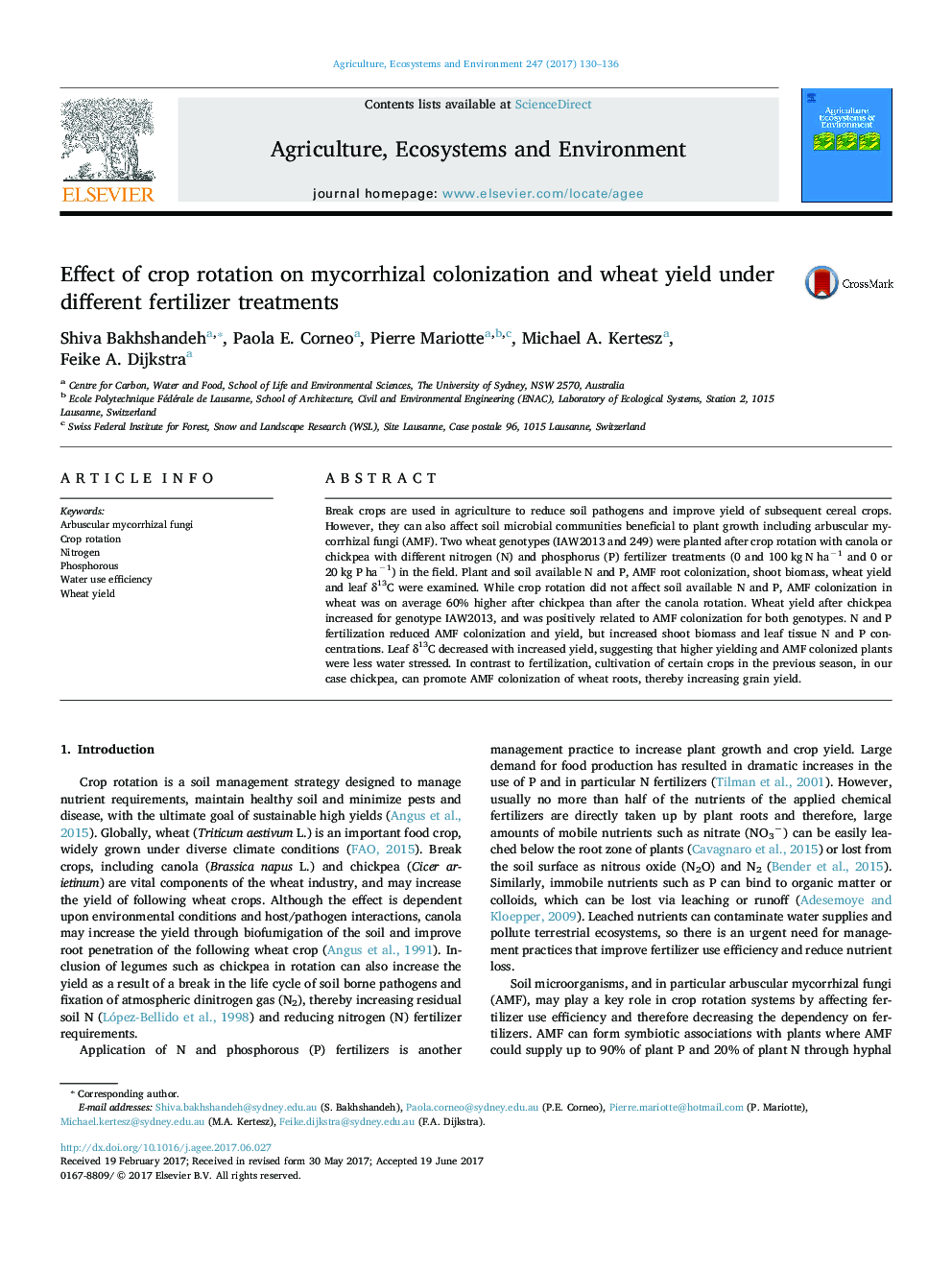| کد مقاله | کد نشریه | سال انتشار | مقاله انگلیسی | نسخه تمام متن |
|---|---|---|---|---|
| 5537985 | 1552005 | 2017 | 7 صفحه PDF | دانلود رایگان |
عنوان انگلیسی مقاله ISI
Effect of crop rotation on mycorrhizal colonization and wheat yield under different fertilizer treatments
ترجمه فارسی عنوان
اثر چرخش محصول بر کلونیزاسیون میکوریزا و عملکرد گندم تحت تیمارهای مختلف کود
دانلود مقاله + سفارش ترجمه
دانلود مقاله ISI انگلیسی
رایگان برای ایرانیان
کلمات کلیدی
قارچ میکوریزا آربوسکول، تناوب زراعی، نیتروژن، فسفر، بهره وری استفاده از آب، عملکرد گندم،
موضوعات مرتبط
علوم زیستی و بیوفناوری
علوم کشاورزی و بیولوژیک
علوم زراعت و اصلاح نباتات
چکیده انگلیسی
Break crops are used in agriculture to reduce soil pathogens and improve yield of subsequent cereal crops. However, they can also affect soil microbial communities beneficial to plant growth including arbuscular mycorrhizal fungi (AMF). Two wheat genotypes (IAW2013 and 249) were planted after crop rotation with canola or chickpea with different nitrogen (N) and phosphorus (P) fertilizer treatments (0 and 100 kg N haâ1 and 0 or 20 kg P haâ1) in the field. Plant and soil available N and P, AMF root colonization, shoot biomass, wheat yield and leaf δ13C were examined. While crop rotation did not affect soil available N and P, AMF colonization in wheat was on average 60% higher after chickpea than after the canola rotation. Wheat yield after chickpea increased for genotype IAW2013, and was positively related to AMF colonization for both genotypes. N and P fertilization reduced AMF colonization and yield, but increased shoot biomass and leaf tissue N and P concentrations. Leaf δ13C decreased with increased yield, suggesting that higher yielding and AMF colonized plants were less water stressed. In contrast to fertilization, cultivation of certain crops in the previous season, in our case chickpea, can promote AMF colonization of wheat roots, thereby increasing grain yield.
ناشر
Database: Elsevier - ScienceDirect (ساینس دایرکت)
Journal: Agriculture, Ecosystems & Environment - Volume 247, 1 September 2017, Pages 130-136
Journal: Agriculture, Ecosystems & Environment - Volume 247, 1 September 2017, Pages 130-136
نویسندگان
Shiva Bakhshandeh, Paola E. Corneo, Pierre Mariotte, Michael A. Kertesz, Feike A. Dijkstra,
